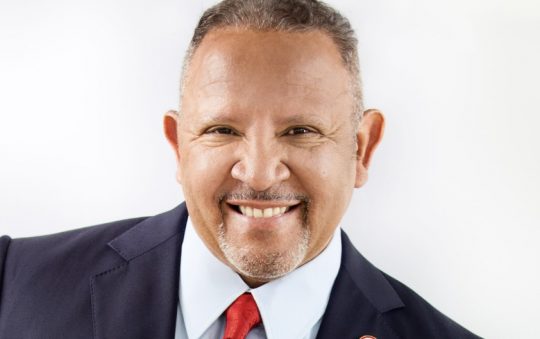
Conservatives’ claim that identity politics, as practiced by Blacks and other people of color is not the “American way” is both hypocritical and patently false. It is the American way! (Identity politics is widely defined as strong, self-enhancing positions by a racial, ethnic, or any other special interest group, to advance that group’s political and/or economic interests.) This column regularly asserts Blacks themselves must define their own agenda and self-serving identity politics is indispensable for effectively collaborating with other groups to gain social and economic justice.
Conservatives’ insistence that identity politics is contrary to the nation’s best interests is simply a smokescreen for perpetuating racism and white privilege. From its very beginning, identity politics was a major factor in this nation’s White Anglo-Saxon Protestants (WASP) pillaging the lives and land of Native Americans. Prejudice and bigotry exists in all groups, but there is an extremely important difference between prejudice and bigotry- and racism. Racism is the power of the dominant racial or ethnic group to control others based on race or ethnicity. Therefore, it is virtually impossible for Blacks and others of color to be racist in this country because they have neither the power to control other groups, nor America’s wealth nor resources. (However, when Blacks, or others of color, are the dominant group, as is the case in many countries throughout the world, it follows, they too can be racist.)
Conservatives oppose Black identity politics because they fear that greater Black unity would strengthen and enable them to forge alliances with other groups, thereby posing a threat to white dominance. Needless to say, Tea Party, as well as rank and file Republicans i.e., regular conservatives, are interested in protecting the status quo, and for them, “justice for all” is nothing more than political rhetoric. Similarly, conservatives also denounce cultural solidarity among Blacks and other so-called minorities of color, even though cultural solidarity is an integral component of racism and white privilege.
Demographic diversity in the 21st century has increased, but powerful right-wing forces’ opposition to liberalism and progressivism got uglier during Barack Obama’s presidency. Even members of Congress joined in stonewalling and denigrating the president. Is there really any doubt that the unprecedented attacks on Obama were anything but racist? Or, that those atacks happened with little or no public outcry. (Conservative attacks, notwithstanding, the biggest challenge for Blacks themselves, was, and is, to develop strategic alternatives that protect their specific interests, more on this later.)
After the Civil War, certain non-WASP European immigrants were not welcomed and considered a threat to America’s culture. But because they were white, European immigrants were able to assimilate and eventually ascend to high level positions in both the private sector and government. Not so for Blacks who obviously could not pass the color muster. I maintain that for Blacks to gain full social, economic and political justice will first require their reclaiming self-empowering moral and ethical values- as opposed to embracing America’s individualism and materialism. This is a daunting but indispensable task.
There are many reasons for Blacks’ apparent difficulty in forging sustainable unity, some obvious, some not. An important but little discussed problem, as mentioned earlier, is most Blacks have internalized the white majority’s values without full access to its benefits. Psychologically, for Black people to seriously challenge the dominant society is tantamount to challenging themselves. Also, there is merit to the argument it would be a major victory if Blacks exerted political and economic strength commensurate with their numbers in the population.
Racism is the axis of white supremacy and continues to determine who gets what, politically and economically. Conservatives’ strong opposition, not only to Obama, but to Black progress continues to serve to reinforce barriers to Black progress. And race remains both the source and potential solution for human rights and relations problems in the 21st century. While a post-racial society is pure fiction, highly touted multiculturalism is no panacea; no matter how well-intentioned, multiculturalism too tends to dampen the need for a more inclusive and equitable identity politics that unapologetically accords righteous weight to all groups especially at high level bargaining tables. Clearly, Blacks, Latinos, and others most in need, are not given equal status in the social justice and political arenas.
A related aside: President Obama’s tendency to downplay racial inequities served to aggravate, not alleviate Blacks’ problems. He said things like, “My stimulus package will lift all boats.” But was the Black boat really part of the fleet? Coupled with other disturbing indicators like bailing out banks and big corporations, the Obama’s administration attention to Blacks’ specific needs was grossly inadequate. Indisputably, the economic recovery did not help most Blacks, who remain at virtually at the bottom of every political, economic and quality of life indicator.
It is critically important that the Black community determines its own political and economic priorities by working together to develop strategies that challenge the barriers to long range progress. This is daunting but essential task, especially in light of Donald Trump’s presidency and conservatives’ increasing opposition to all things “liberal.” For Black people, identity politics should be a source of pride and solidarity, just as it is for the hypocritical Tea Party and rank and file conservatives. We must never minimize the importance of identity politics because it is indispensable in any viable equation for Black empowerment.






